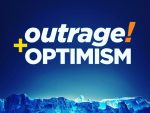If you’re sweating just thinking about the journey to find the perfect, cheap mini-fridge for your dorm, Re-Fridge might be the perfect solution for your dilemma. Mitch Newlin just graduated from Bates College and currently serves as the founder and president of the company Re-Fridge. Since it launched on a college campus, it is geared specifically towards college students. At the end of the school year, employees come into dorm rooms and get the ultimate workout by repeatedly carrying used mini-fridges and loading them into trucks. The fridges are then cleaned and stored to be used just a couple months later. When the beginning of the school year comes around, Re-Fridge sells fridges to students who eagerly accept an inexpensive and efficient opportunity to store their leftover dining hall pizza.
As an economics student, Newlin has been trained to see inconsistencies within the economy, and he had the chance to actually make a change in hopes of seeing a more balanced environmental system. After seeing old fridges being tossed aside while incoming students are buying new, expensive ones at stores, he took it upon himself to transform the environment of college dorm life. In addition to selling and buying fridges, the company donates 20 percent of its profits to a Kenyan educational charity. Re-Fridge is now present in eleven different colleges, with student employees picking up and dropping off used fridges in order to encourage environmental preservation and charity work.
Kaitlyn Peterson: How did your business come to be?
Mitch Newlin: I was a freshman, and I saw students at the end of the year moving all their stuff. They were pretty much leaving with just their suitcase, and that was all they could take with them. There were couches, TVs and refrigerators that they were just willing to leave behind, and I was blown away that people could just walk away from hundreds or thousands of dollars of stuff. I came back with my parents’ trailer on my own and picked up all of the stuff that people had left and stored it in my parents’ basement.
In the fall, I reached out to the incoming class, and all of it sold really quickly. I decided to steer clear of couches, with it being impossible to lift them on my own, and TVs, being so breakable, but, many refrigerators are durable, so I chose to stick with them. I put a plea out at the end of my sophomore year saying, “If anyone knows anyone wanting to sell their fridge, here’s my number and I’m happy to come pick it up and pay cash for your fridge.” I got about forty-eight students to approach me during my sophomore year, and I ended up selling all of them back the beginning of my junior year.
KP: How did you see your business grow after those experiences?
MN: As an employee at The Gelato Fiasco, I was close with the owner, who was a young entrepreneur who had gone through the process of growing a small company ten years ago. He was very interested in giving me mentorship; when he realized that this idea had potential, he told me to become more serious about my business and make an app. We put a lot of time and energy into developing this app and getting insurance during my junior year. I spent equal amount of time working with Re-Fridge as I did being in class. By the end of my junior year, the app was fully functional.
I had reached out to friends and people in class groups to find people who were interested in moving fridges as a part-time job. I found some people to help work with me, and we ended up collecting fridges at eleven schools during my junior year. There were a lot of logistical nightmares—I had seventeen employees when we started the pick-up season, and only eight people came through—so that was a learning experience for sure. We picked up just over two hundred fridges my junior year and then sold those in my senior year.
KP: What were the key things that you learned from your mentorship and running your own business?
MN: Insurance and legal counsel were things that I had no experience with at all. Since Gelato Fiasco has grown substantially, the owner set me up with its lawyer. They advised me about what logistical things to look out for, such as insurance, which was helpful because I didn’t realize that we were going to need electrical safety checks that were insured. I also didn’t know that we needed the products and locations of all of our facilities ensured. The lawyer pointed out issues that I had no idea even existed.
KP: Where does your passion play into this business?
MN: I think the biggest thing that drove me to start this business was my interest in environmentalism and the realization that people were throwing out so many items that were totally functional and valuable, and then buying new ones for more money elsewhere. I really have no passion for mini-fridges, but it was a passion for environmental preservation and a passion for fixing deficiencies in the economy.
In addition to that, I’ve always thought of ways that we could make money while simultaneously making a difference. We dedicate 20 percent of our profit to charities because we want to help people help others. Friends of Kakamega is a non-profit charity that funds vulnerable children and orphans in western Kenya. It’s entirely Kenya-run and 90 percent funded by the U.S. Education for children K-12th grade is for the majority funded by individual donors, and it’s definitely something that I’m passionate about. The Kenyan leadership and the organization is unbelievable with their trust, work ethic and the commitment to making a difference in young people’s lives. To have been less fortunate themselves, it’s phenomenal; having been there six times, it’s really impactful for me to see that things are being done right. That’s the organization that is most tied to my heart for sure.

















